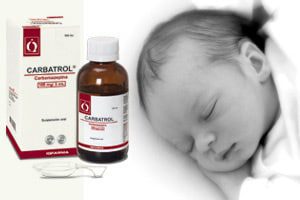
An emerging study has found that anti-epileptic drugs—AEDs—contain additional risks to developing fetuses to those on current drug product labeling. AEDs include the brands Tegretol, Carbatrol, Equetro, Epitol, Lomotrigine, and Depakote. The active ingredient in Depakote is valproate. The Danish researchers used a population-based registry for their study and found that AEDs are associated with […]
 An emerging study has found that anti-epileptic drugs—AEDs—contain additional risks to developing fetuses to those on current drug product labeling. AEDs include the brands Tegretol, Carbatrol, Equetro, Epitol, Lomotrigine, and Depakote. The active ingredient in Depakote is valproate.
An emerging study has found that anti-epileptic drugs—AEDs—contain additional risks to developing fetuses to those on current drug product labeling. AEDs include the brands Tegretol, Carbatrol, Equetro, Epitol, Lomotrigine, and Depakote. The active ingredient in Depakote is valproate.
The Danish researchers used a population-based registry for their study and found that AEDs are associated with significantly increased risks for low birth weight, pre-term birth, and smaller-than-normal head circumference in babies who are born to women who take AEDs when pregnant, said Demet Kilic, MD, of Aarhus University Hospital in Aarhus, Denmark, according to MedPageToday.
Of the one million pregnancies from 1997 to 2008 in Denmark studied, 2,928 involved births in which the mothers’ medical records indicated that they used AEDs while they were pregnant, Dr. Kilic told attendees when speaking at the World Congress of Neurology, MedPageToday reported. After the researchers adjusted for so-called “confounders,” the adverse birth outcomes—which the team concluded were significantly more common in AED births when compared to births in which AEDs were not involved—were:
Dr. Kilic pointed out that the relative risk for preterm birth—births that occur earlier than 37 weeks of gestation—was 1.51 in AED pregnancies; the relative risk for a baby being born undersized for his/her gestational age was 1.21, according to MedPageToday.
Similar risks have been seen in animal studies; however, prescribing information for approved AEDs has, up until now, only discussed birth defects. For instance, notes MedPageToday, labeling for the AED Tegretol-XR (carbamazepine), which carries a “D” rating for pregnancy risks over positive evidence of fetal risk, simply mentions “craniofacial defects, cardiovascular malformations, hypospadias, and anomalies involving various body systems” based on epidemiological data. The potential for low birth weight or pre-term birth is not included. The Danish study, explained Dr. Kilic, was meant to fill that research gap.
We recently wrote that babies who are born to mothers exposed to AEDs during pregnancy were likelier to receive abnormal scores on motor development and autism traits testing, according to a prior study. These findings, noted MedPageToday previously, add to existing research that ties epilepsy drugs to congenital defects, concluded Gyri Veiby, MD, of Haukeland University Hospital in Bergen, Norway, and co-authors in an article published online in Epilepsia. “Exposures to valproate, lamotrigine, carbamazepine, or multiple antiepileptic drugs were associated with adverse outcome within different developmental domains,” the authors wrote.
A prior Danish study revealed additional evidence that fetal exposure to Depakote, specifically its active ingredient, valproate, increases a baby’s risk of developing autism spectrum disorders (ASD) three-fold. Depakote, approved for the prevention of migraines, treating acute manic episodes in bipolar patients, and halting seizures in adults and children, has been associated with birth defects when taken by pregnant women. Just prior, 26 women filed lawsuits claiming that the makers of Depakote illegally marketed the drug for off-label purposes and failed to warn of the side effects of the drug. Each of the women claimed they were prescribed and took Depakote just before getting pregnant or during the first trimester of their pregnancy and that the drug caused them to give birth to children with a wide array of severe, some life-threatening, birth defects.


